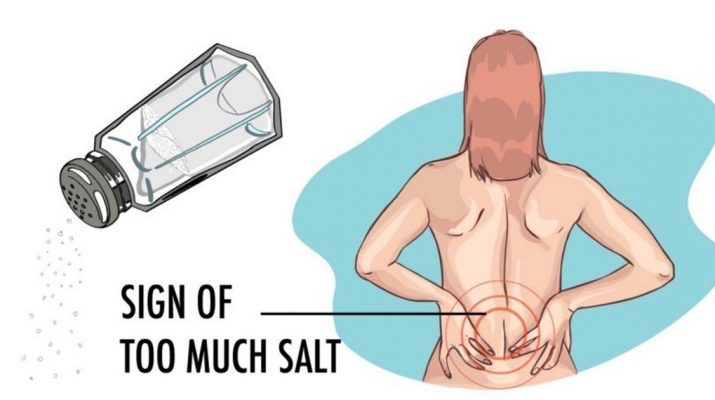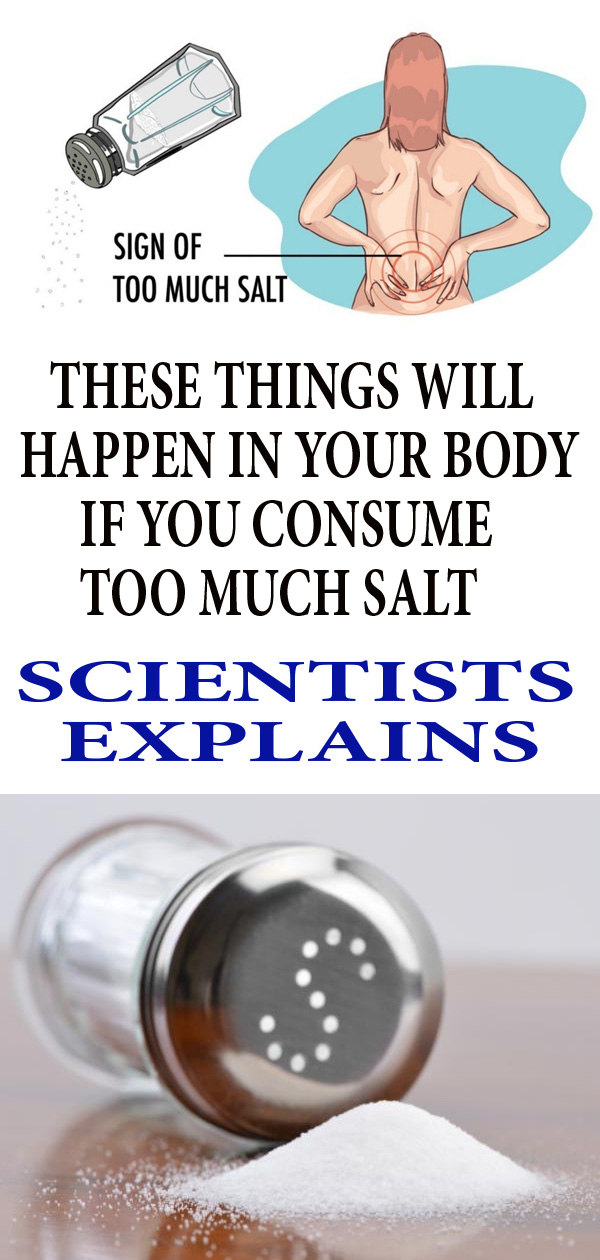Salt certainly improves the food, yet using it excessively can cause serious damage to your health.
The American Heart Association (AHA) suggests eating around 1,500-2,400 mg of salt every day, except evidently, Americans devour a normal of 3,400 mg day by day and a large portion of this admission is a consequence of the utilization of handled items.
Such high measures of salt raise the danger of medical problems. The New England Journal of Medicine discharged an examination which found that universally, about 1.65 million deaths are a consequence of the undesirable sodium use. In America just, 10%of all heart-related deaths happen because of extreme sodium admission.
The exorbitant salt intake causes medical problems, like:
Brain Fog
Cognitive impairment can be caused by excess salt. The Neurobiology of Aging distributed an investigation in 2011, which demonstrated that the extreme use of salt can prompt cognitive decline, and brain fog is one of its early indications.
Kidney Issues
Sodium brings up the risk of kidney stones as it builds the calcium levels in the urine. High salt admission prompts water retention, and as kidneys eliminate less water, one causes high blood pressure. This prompts kidney disappointment as the circulatory strain influences veins that go right to kidneys.
Osteoporosis
The body loses calcium through urination, and the more salt you lose, the more calcium you lose. The absence of calcium in the body causes osteoporosis and weak bones.
Bloating
Sodium prompts water maintenance, and swellings that occur in the legs, feet, and hands, and chronic bloating as well.
Hypertension
High salt admission raises the risk of hypertension, as the heart is compelled to pump more because of water retention. This adds more strain to inner organs and causes cardiovascular diseases, dementia, stroke, and heart disease.
So, it is highly important to decrease the salt intake, and here are a few useful tips:
- Increase the potassium intake, this mineral neutralizes the sodium effects and lowers the blood pressure.
- Avoid processed and canned foods, focus on grass-fed meat, vegetables, and fruits.
- Don’t use too much salt when you cook.
- Avoid processed foods because they have a low nutritional level, but contains huge amounts of salt.
As indicated by Stephanie Dunbar, enrolled dietician, chief of Nutrition and Medical Affairs at the American Diabetes Association, analysts have demonstrated that if everyone diminished sodium in their eating routine, the rates of coronary illness in the United States would radically go down.
Salt has been utilized for many years as an additive, and because of its low cost, most sustenance creators use it as a seasoning nowadays. It is significantly more costly to utilize different herbs and flavors to make nourishment taste superior to include salt.
Also, it is difficult to remove sodium, considering our present food production it is extremely hard to get rid of sodium. For example, a slice of bread can have 250 mg of sodium on its own. Consequently, one needs to stay away from a wide range of processed and canned foods, which are incredibly wealthy in salt, so as to have the capacity to achieve that proposal.


